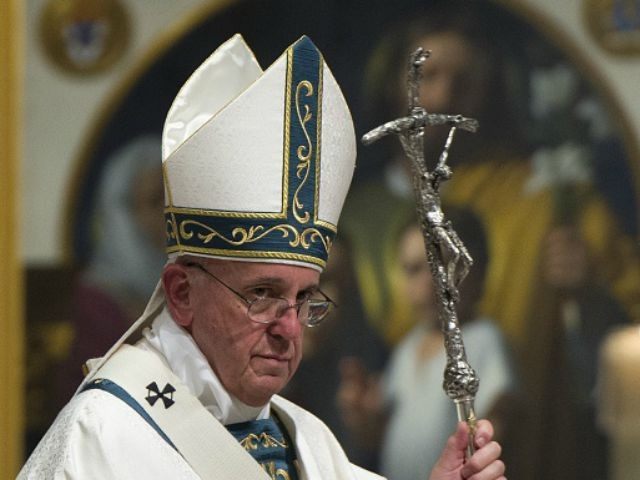As the Vatican synod on marriage and the family draws to a close with no significant change in Catholic doctrine or practice, liberals are left nursing their wounds over yet another revolution that didn’t happen.
The poster child of progressive bitterness is Jesuit Father Thomas Reese, a long-time proponent of liberal reforms in the Catholic Church, who saw in this synod a chance for the sort of sea change that couldn’t have happened under Popes John Paul II or Benedict XVI. And yet it didn’t happen here, either.
Though the synod was convened to discuss the many issues facing Christian families in the world today, Reese and his cohort had a considerably more narrow focus: Communion for the divorced and remarried and a softening of the Church’s condemnation of homosexual sex.
The “success” of the synod would be the degree to which these two objectives were reached.
As Reese himself wrote on Oct. 20: “The bishops appear oblivious to the fact that, at least in the West, the success of the synod will be judged by whether there is an opening to Communion for divorced and remarried Catholics.”
The irony behind Reese’s hubris in attempting to speak for the entire “West” is unfortunately lost on a man whose gauge of the western mind is limited to whatever the New York Times and the Washington Post are spouting.
What of the innumerable faithful in the West who are grateful for the Church’s teaching on marriage? What of the astonishing letter of more than 130 notable converts to Catholicism, who appealed to Rome not to change its precious teaching on marriage and human sexuality?
In their letter, the converts expressed their hope that the bishops “will be encouraged by the multitude of lay faithful who were, and continue to be, attracted to the Church in large part because of what she proposes about the human being in her teaching about sexual difference, sexuality, marriage, and the family.”
As other Christian communions have little by little caved under the pressures of modern society–abandoning age-old Christian teaching on marriage and sexuality and adapting their standards to a secular morality–the Catholic Church alone has stood firm, they asserted.
But Father Reese and other liberal reformers do not like the Church the way it is. They want to remake it to be like the Anglican Church, a body that modifies its teaching every few years to keep up with the times and mirror the secular world around it. Yet none of these reformers takes the logical step of actually becoming Anglicans, because then they would cease to be relevant.
The liberal desire to make marriage perishable is accompanied by their wish to see homosexuality celebrated as part of God’s plan for humanity.
“In the West,” Reese writes, “there is also some support for modifying the church’s approach to homosexuals.” He opposes tried-and-true Christian language such as “hate the sin, love the sinner,” because gays experience their sexual inclinations as “intrinsic” to their identity. Progress would mean loving both the sinner and his sin.
Alas, this has not happened either. As Reese laments, “some bishops are obsessive in their opposition to homosexuality” and a lay woman invited to speak at the synod made the mistake of speaking of homosexuality as a “lifestyle choice,” anathema in the LGBT world.
The root of the problem, Reese writes, is that the “bishops are currently trapped in the old theology they learned in the seminary. They are afraid of new ideas and are not consulting with theological experts who could show them other options.” Never mind that all these bishops attended seminary after the Second Vatican Council. Never mind that Catholics consider the 2000-year-old teaching of Jesus and the apostles to be “Good News” today just as it was when it was preached for the first time.
The fact is, that the bishops have been bombarded with many “new ideas” and after considering them they have said no.
In the end, the Pope and bishops’ resistance to the sirens of the liberal agenda gives hope to the many Catholics who like being Catholic and who expect their Church to be true to the teaching of Jesus and its own tradition.
Yes, the bar is high and none of us clears it all the time. Yes, the gospel message is demanding and requires sacrifice and self-denial, things our fallen nature rejects. And yes, being Catholic means recognizing our own need for mercy because we have all fallen short of the glory of God. But this acknowledgement of our weakness and need for redemption is not demeaning or belittling, but liberating. Being challenged doesn’t make us smaller, it encourages us to pursue greatness.
“Who is left who can offer the world something other than an echo of its own cynicism?” the Catholic converts wrote in their letter. “Who is left who can lead it toward a real experience of love? Now more than ever the world needs the Church’s prophetic witness!”
The bishops, together with Pope Francis, have said “Amen” to that.
Follow Thomas D. Williams on Twitter @tdwilliamsrome

COMMENTS
Please let us know if you're having issues with commenting.